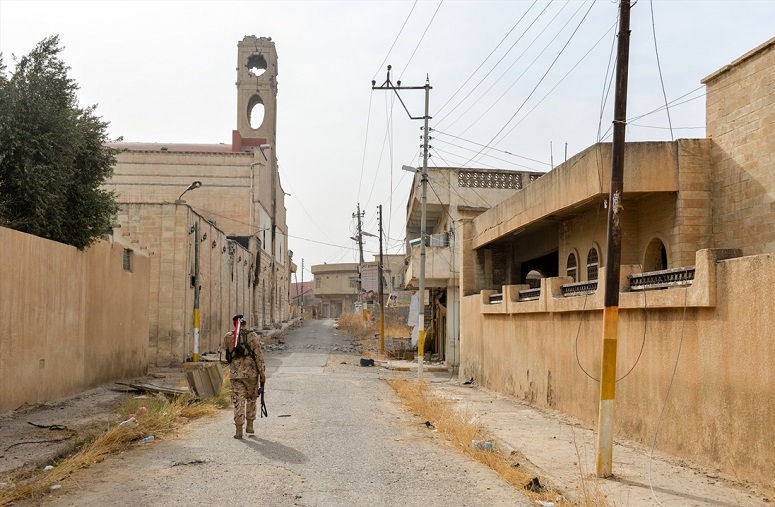
Three years to the day since the Islamic State group took control of the Iraqi city of Mosul, a new report estimates that – of their Christian populations – 50% have left Iraq since 2006, while 80% have emigrated from Syria since the start of its civil war in 2011.
The arrival of IS was only the “tipping point” of a trend already gathering pace as Christians experienced an “overall loss of hope for a safe and secure future”, according to the report, produced by Christian charities Open Doors, Served and Middle East Concern.
The report also notes that for the Christians who have settled elsewhere, there is “little incentive” to return, with several interviewees saying “the Middle East is no longer a home for Christians”.
“There is little incentive to return, with several interviewees saying the Middle East is no longer a home for Christians.”
In a policy paper released alongside the report, the three charities call on the EU to help establish an “accountability mechanism” to deal with incidents of religious and ethnic persecution and discrimination in Iraq and Syria.
“Creating a national accountability mechanism for grievances is a long-term solution which aims to restore faith in a system that ensures all religious and ethnic communities are affirmed as equal citizens and deserving of protection, while also deterring negative actors from taking adverse actions against these communities,” the charities write.
They urge the EU to “advocate for the establishment of the mechanism through its contacts with the Iraqi and Syrian governments” and to provide funding, technical support and monitoring. The mechanism, the charities add, “should be transparent and inclusive, ensuring all key stakeholders at all levels (government, community leaders, civil society and the public) are represented adequately”.
Major findings
The report, ‘Understanding the recent movements of Christians leaving Syria and Iraq‘, acknowledges the difficulty of producing definitive figures, as it estimates that the overall Christian population of Iraq has reduced from “well over 300,000” in 2014 to 200,000-250,000 today – “many” of whom are now displaced internally. In Syria, meanwhile, the charities estimate that the Christian population of around 2 million in 2011 has “roughly halved”.
“Factors for leaving included the violence of conflict, including the almost complete destruction of some historically Christian towns in the Nineveh plains of northern Iraq, the emigration of others and loss of community, the rate of inflation and loss of employment opportunities, and the lack of educational opportunities,” the report notes. “While direct violence, such as the movements of ISIS in both Iraq and Syria, was the tipping point for displacement, the ultimate decision to leave the countries was portrayed as an accumulation of factors over time.”
A greater number of Christians are thought to have left Syria, but only because the initial population was higher, according to the report, which adds that a greater proportion of Iraq’s Christians have left the country.
The Christians have emigrated via a range of routes, including resettlement programmes through churches, formal refugee registration and “illegal routes” – though the deaths of Christians trying to cross the Mediterranean Sea to Europe have reportedly “dissuaded some”, while “the high price of these routes have made them unavailable for others”.
Lebanon has reportedly taken in the most Christians, while thousands more have resettled in Jordan and Turkey, and a smaller number in European countries such as Sweden and Germany. However, “recent policy changes, as well as living conditions, have made arrival or staying in many of these countries, such as Sweden, incredibly difficult”, the report concludes, adding: “There were reports of returns [home], but many expressed the sentiment that Christians have given up hope of returning.”
However, the charities note that “many” of those who remain “want to play their part in rebuilding the shattered societies of Iraq and Syria. They want to be seen as Iraqi or Syrian citizens, enjoying the full rights of citizenship, such as equality before the law and full protection of their right to freedom of religion or belief, including the ability for everyone to freely worship, practise, teach, choose and change their religion. They are not calling for special privileges as a religious minority.”